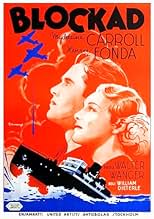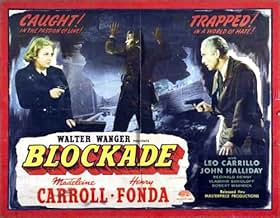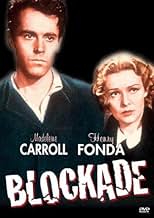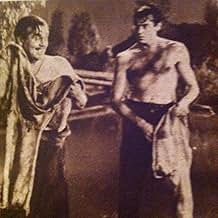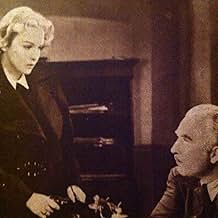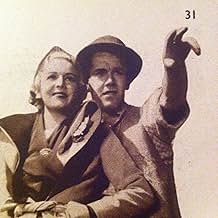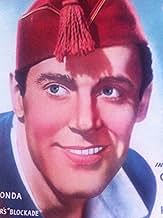A simple peasant is forced to take up arms to defend his farm during the Spanish Civil War. Along the way he falls in love with Russian whose father is involved in espionage.A simple peasant is forced to take up arms to defend his farm during the Spanish Civil War. Along the way he falls in love with Russian whose father is involved in espionage.A simple peasant is forced to take up arms to defend his farm during the Spanish Civil War. Along the way he falls in love with Russian whose father is involved in espionage.
- Director
- Writers
- Stars
- Nominated for 2 Oscars
- 3 wins & 2 nominations total
- Pietro
- (as Fred Kohler Sr.)
- Commandant
- (as Wm. B. Davidson)
- Cabaret Singer
- (as George Byron)
- Townswoman
- (uncredited)
- Director
- Writers
- All cast & crew
- Production, box office & more at IMDbPro
Featured reviews
The story concerns the Spanish Civil War.
The script was written by an avowed Communist, John Howard Lawson who wanted to "present the Communist position" in his scripts. He doesn't really get to do that in Blockade, since it's deliberately ambiguous as to the different factions, referred to as "they" and "us." The costuming also doesn't suggest anything as far as sides.
The story concerns a place called Castelmare, where Marco and Luis (Fonda and Leo Carrillo) help a Russian woman, Norma (Madeleine Carroll) who has had a car accident on the way to her father's. For Marco, it's love at first sight.
When war begins, Marco is the head of a group of peasant attempting to defend Castelmare. Meanwhile, Norma and her father are forced to spy for the other side. Marco winds up killing Norma's father.
Castelmare cannot get any supplies, and Norma is being blackmailed to give information about the ship so that it can be sunk.
Probably the most striking thing are the closeups of the suffering peasants.
Casablanca it isn't. Fonda and Carroll have no chemistry. The dialogue is very stilted.
Henry Fonda at the end gives an impassioned speech right into the camera. It's embarrassing.
Boasting the tagline 'the most important film of 1938' and having been awarded Oscars at the time of its release, I decided to watch this film and see what the fuss was about. What I found was a film that is too self-consciously cautious to be great fun, too worthy to be involving and ends up being rather dull and uninteresting. The basic plot is set around the Spanish civil war but it appears to have been careful about coming down on either side of the argument and therefore is so balanced that it almost cancels out any content that may have been challenging or informative. This leaves a story about personalities and the central romance, which is a problem because the film doesn't deal with these very well either. The romance tries to be bleak and supposedly doomed but it just can't get the tone right and it never really gets anywhere near as emotive as it needed to be certainly this is no Casablanca.
With the script problems and rather drab direction, the film only occasionally gets close to being really impacting and involving and it was only the moments where the horrors of the conflict are allowed to get above political neutrality that the film comes to life but these are too infrequent. The cast are set adrift and do the best they can to squeeze emotion and drama out of the script but their efforts just seem out of place against a rather flat backdrop. Fonda is always watchable even if his 'good honest man' is a rather dull character and, for that reason, hard to get behind; certainly modern audiences may find his unquestioning patriotism and simple morals hard to swallow. Carroll is better than the film deserves, her performance is very good and it is just a shame that the rest of the film doesn't come up to her level of work. Support is OK but the script doesn't fill the film that well and most of the cast are given little to do.
Overall this may well have been the 'most important film of 1938' but it doesn't do a great deal today. The film doesn't inform and isn't interesting as it carefully treads the complexities of the conflict and Fonda's final to-camera rant about peace is too little, too late and just comes across as being rather pat. The romance could have saved it but this too is fluffed despite the best efforts of Carroll, but Fonda, despite being worth a look, plays it all to simplistically in line with the material.
"Blockade" is a case in point. The script was written by John Howard Lawson, one of the most hard-line Communists working in Hollywood, about the Spanish Civil War, a cause dear to the heart of every leftist. And yet its script is so confused that it is impossible to tell whether its politics are pro-Republican or pro-Nationalist.
Marco, a small farmer living somewhere near the Mediterranean coast of Spain, takes up arms to defend his land against the Bad Guys, and then becomes part of the Good Guys' army. He takes part in the defence of Castelmare, a port city held by the Good Guys but being blockaded by the Bad Guys who are hoping to starve it into surrender. The plot revolves around the attempts of the Good Guys to send a ship through the blockade to bring food to the starving citizens, and the attempts of the Bad Guys and their spies within the city to frustrate this plan by sinking the ship.
No doubt if Lawson had had his way he would have written a script which made it quite clear that the Good Guys were to be identified with the Republicans, but the studio- who doubtless felt that actually making a film about the conflict was quite brave enough- were determined that they should not be seen as favouring one side against the other, and the script was therefore neutered so as to ensure that the question of who the Good Guys and the Bad Guys actually were remained obscure. The film makes no reference to the International Brigades or to foreign intervention in the war, and all personal names and place names are fictitious. (The name "Castelmare" is actually Italian rather than Spanish, as is "Montefiore", another place mentioned in the film. The hero's name in Spanish would normally be "Marcos" rather than "Marco", and there are also characters with the Italian-sounding names "Pietro" and "Seppo". Lawson seems to have got confused about the differences between Spanish and Italian).
There are some factors which do indeed suggest that the Good Guys are intended to be identified with the Republicans, in particular the fact that the Bad Guys carry out air raids against civilian targets, a typically Nationalist tactic. Some have also pointed to the fact that the chief Bad Guy spies, a young woman named Norma and her father, are of Russian origin, although it should be mentioned that not all Russian émigrés at this period were Tsarists or even right-wingers; there were plenty of Russian liberals, social democrats, anarchists and Trotskyites in exile from Stalin's regime. (Norma later has a change of heart when she sees the suffering the blockade is causing, switches to the Good Guy side and becomes Marco's love-interest).
Other factors, however, suggest that the Good Guys are intended to be identified with the Nationalists, and not only the design of their uniforms which another reviewer mentioned. Marco mentions that the Bad Guys are targeting churches for destruction, just as the anarchists and communists did in the regions of Spain under their control. His taking up arms in defence of his land recalls the fact that the leftist programme of collectivising land forced many small farmers, who otherwise would have had little sympathy with Fascism, to support the Nationalist cause, fearing that in the event of a Republican victory they would share the fate of the Russian kulaks.
Yet despite its political incoherence the film has some good points. Indeed, it is perhaps the film's refusal to take sides that makes it still watchable more than seventy years on, certainly more watchable than a mere Francoist or anti-Francoist propaganda tract would be. Certainly, it is dated, something shown in those scenes which supposedly take place outdoors but which were in fact shot in a studio in front of very unconvincing-looking backcloths. Although it ends with a rousing peroration from Marco in which he calls for outside intervention in the war, its main interest today is as an anti-war drama, a film which shows us the human cost of war, a cost which remains the same whether the war is being waged by Good Guys or Bad Guys. 6/10
For political propaganda that both entertains and persuades, let me suggest Casablanca. For political propaganda that offers only a few glimpses of the radiant Madeleine Carroll and nothing more, I recommend Blockade. That, unfortunately, is not enough to salvage this less than scintillating 1930s leftist pap.
Sooner the Spanish Civil War begins and Marco leads a group of peasants to defend Castelmare and he is assigned lieutenant of the rebels' army. Meanwhile, Basil and Norma are forced to spy for Andre Gallinet (John Halliday). Marco suspects of Basil and follows him to his room. When Basil reacts, Marco kills him in a shooting.
Meanwhile, Castelmare is under siege and without supplies, and Norma escapes from Marco. But she is blackmailed by Gallibet and forced to return to Castelmare with information about the ship that is bringing supplies for the population.
"Blockade" is a shallow and corny melodrama during the Spanish Civil War (17 July 1936 to 01 April 1939). The dull romance between Marco and Norma has no chemistry and the author uses a historical event that is happening in 1938 in a neutral position and no references. The final speech of Henry Fonda's character is one of the awfullest conclusions that I have ever seen in a classic. My vote is five.
Title (Brazil): "Bloqueio" ("Blockade")
Did you know
- TriviaThe original title of this film was "The River is Blue" and the director was to be Lewis Milestone. Kurt Weill even wrote music for the project that was never used (lyrics by Ann Ronell). The title was changed to "The Rising Tide" and "Castles in Spain," then finally to "Blockade." The topic of the Spanish Civil War was politically sensitive and there is some hint that the upheavals of the original project were due to the political content of the film.
- Quotes
Marco: [last lines, after being told to find peace] Marco: Peace? Where can you find it? Our country's been turned into a battlefield! There's no safety for old people and children. Women can't keep their families safe in their houses; they can't be safe in their own fields! Churches, schools, hospitals are targets! It's not war; war is between soldiers! It's murder! Murder of innocent people! There's no sense to it. The world can stop it! Where's the conscience of the world?
- ConnectionsFeatured in Red Hollywood (1996)
Details
Box office
- Budget
- $692,087 (estimated)
- Runtime
- 1h 25m(85 min)
- Color
- Aspect ratio
- 1.37 : 1

